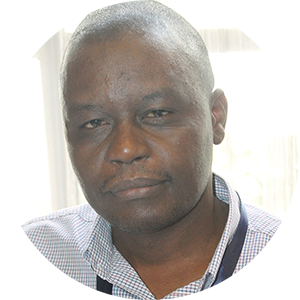Food safety training challenges future thinking
Experts from six African countries attended a workshop in Nairobi, Kenya earlier this year, to build national capacity on foresight related to food safety and ultimately to launch a process to better identify and prepare for food safety issues.
The workshop, designed by FAO familiarized participants with foresight techniques that will enable them to reflect on the changing nature of food safety within food systems and support the identification of emerging food safety issues in Ethiopia, Kenya, Malawi, Rwanda, Tanzania and Uganda.
Over four days participants explored new techniques such as visioning and backcasting and reviewed seven questions that will enable them to design a draft plan for a national process on food safety foresight.
“This process that has been started should also feed into the Codex regional meetings in 2019,” said Cornelia Boesch FAO Food Safety and Quality Officer, emphasizing that all member countries need to be ‘foresight-literate’. “We now have a dedicated group of professionals committed to interact with us and who can provide us with insights on upcoming food safety issues in their country,” she said.

Participants expressed appreciation for learning how to design more effective strategies based on imagined desired futures, explore alternative futures and challenge default futures.
“The workshop on Food Safety Foresight was a game changer for me. In addition to addressing food safety issues, the foresight concept opened a whole new horizon with respect to how I now perceive life,” said Abel Atukwase from Makerere University, Uganda.

“I like the practical step-by-step nature of the workshop and all content was really valuable and relevant to my job. I am bursting with ideas of improving food safety in our country,” said Anita Kamanda from the Ministry of Health of Kenya.
FAO defines foresight as “an approach and a process which requires broad thinking and results in the generation of multiple scenarios and ideas. Some of these ideas must then be further developed and implemented into policy and subsequent action”.
Applying foresight allows institutions and organizations to improve policy preparedness and their ability to anticipate emerging and critical risks.
“It is essential for standard setting to be continuously challenging the status quo. We see great opportunities for foresight in Codex also in areas such as strategic planning”, said Codex Secretary Tom Heilandt.
Read more online about food safety at FAO.
Categories
- (11)
- (3)
- Animal Feed (8)
- Antimicrobial Resistance (39)
- Antimicrobial Resistance (78)
- CAC46 (15)
- Codex Texts (20)
- Codex Trust Fund (1)
- Codex60 (19)
- Contaminants (13)
- Contaminants (10)
- COVID-19 (64)
- Elections (6)
- Food Safety (126)
- Labelling (10)
- Nutrition and Labelling (5)
- Nutrition and Labelling (7)
- Observers (23)
- Pesticides (7)
- Standards (78)
- World Food Safety Day (154)


